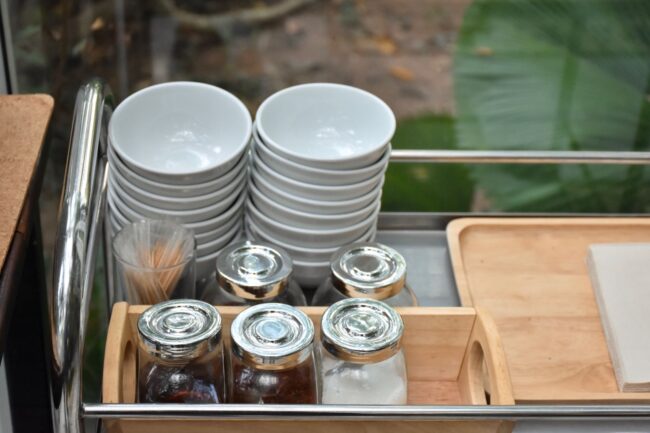Comparing Bulk vs. Retail Purchases for Hotel Supplies
March 20, 2025

The hospitality industry in the UAE is thriving, thanks to its world-class infrastructure, booming tourism sector, and a steady influx of business travelers. For hoteliers, maintaining smooth operations while ensuring exceptional guest experiences hinges significantly on the efficiency of procurement strategies. A key decision lies in choosing between bulk and retail purchases for hotel supplies. Let’s delve into the advantages, challenges, and situational factors associated with each.
Bulk purchases involve buying large quantities of items at once, often directly from manufacturers or wholesalers. This strategy is particularly common for essential supplies such as linens, toiletries, cleaning products, and food items.
Cost Savings: Suppliers often offer discounts for bulk orders, reducing the per-unit cost of items.
Consistency: Bulk purchasing ensures a consistent quality and uniformity of products, enhancing the overall guest experience.
Convenience: Stocking up reduces the frequency of reordering, saving time and effort.
Negotiation Power: Larger orders provide more leverage to negotiate better deals, including favorable payment terms or additional perks.
Storage Requirements: Hotels need ample storage space to accommodate large quantities of supplies.
Upfront Costs: Bulk buying requires significant initial investment, which can strain cash flow.
Risk of Overstocking: Overestimating requirements may lead to wastage, particularly for perishable items.
Limited Flexibility: Bulk orders may lock you into specific products or brands, making it harder to adapt to changing guest preferences.
Retail purchases involve buying smaller quantities of items from local suppliers, supermarkets, or online retailers. This approach is often adopted for last-minute needs or specialty items.
Flexibility: Retail buying allows hotels to respond quickly to specific needs or guest preferences.
Lower Initial Costs: The smaller volume reduces the financial burden on the hotel’s budget.
Reduced Storage Needs: With fewer items, hotels don’t need extensive storage facilities.
Access to Variety: Retail stores often offer a wider range of products, enabling customization and experimentation.
Disadvantages of Retail Purchases
Higher Costs: The per-unit cost is generally higher compared to bulk purchasing.
Inconsistency: There is a greater risk of variations in quality or availability.
Time–Consuming: Frequent trips to retail outlets or placing multiple small orders can be time-intensive.
Unreliable Supply: Retail availability can fluctuate, potentially leading to supply chain disruptions.
Hotel Size: Larger hotels with high occupancy rates benefit more from bulk purchasing due to the scale of operations. Smaller boutique hotels may prefer retail buying for greater flexibility.
Storage Capacity: Adequate storage facilities are crucial for bulk buying. Without proper storage, items may deteriorate or create logistical challenges.
Budget: Hotels with limited cash flow may opt for retail purchases to avoid hefty upfront costs.
Demand Predictability: Consistent demand for specific items favors bulk buying, while fluctuating demand aligns better with retail purchases.
Supplier Reliability: Establishing relationships with reliable suppliers is key. Bulk suppliers should guarantee consistent quality and timely delivery, while retail outlets must ensure accessibility.
For most hotels, the ideal strategy involves a combination of both methods. Essentials with predictable consumption rates, such as bed linens and toiletries, are best purchased in bulk. Specialty items, seasonal requirements, or guest-specific requests may be better suited for retail purchases. Implementing a robust inventory management system can help track usage trends, reduce wastage, and optimize purchasing decisions.
In the UAE’s competitive hospitality landscape, the choice between bulk and retail purchasing should be guided by a hotel’s specific needs, operational scale, and budget constraints. For most properties, a hybrid approach often works best—opting for bulk purchases of essential, non-perishable items while relying on retail sources for perishable goods and specialty items.
Moreover, leveraging technology like procurement software can help streamline purchasing decisions, ensuring cost-efficiency and timely deliveries. Hoteliers in the UAE should also capitalize on the region’s robust supplier networks and negotiate terms that cater to their unique requirements.
By adopting a strategic procurement approach, hotels in the UAE can achieve optimal balance, maintaining both operational efficiency and exceptional guest satisfaction, cementing their position as leaders in the global hospitality market.